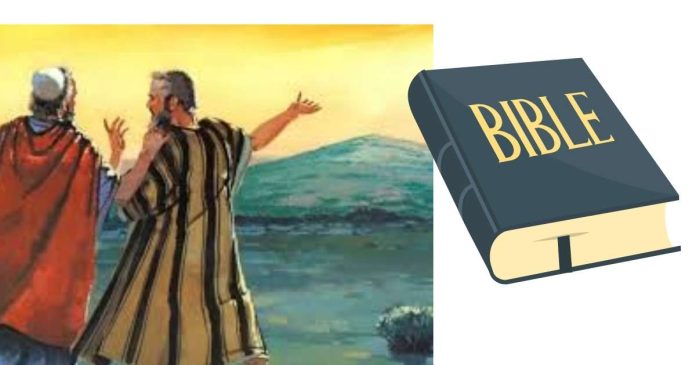The story of the Israelites’ journey to the Promised Land is primarily found in the books of Exodus, Numbers, and Joshua in the Old Testament. The Israelites were led out of slavery in Egypt by Moses and wandered in the desert for 40 years before reaching the edge of the Promised Land (Canaan).
Here’s a breakdown of key events:
- The Initial Promise and the Spying of the Land (Numbers 13-14): After leaving Egypt and traveling through the wilderness, the Israelites reached the border of Canaan, the land promised to their ancestors. Moses sent 12 spies to scout the land (Numbers 13). Among them were Joshua (son of Nun) from the tribe of Ephraim and Caleb (son of Jephunneh) from the tribe of Judah.
After 40 days of exploring, the spies returned with a report. Ten of the spies brought back a discouraging report, claiming that the people living in the land were giants and too powerful to defeat. Only Joshua and Caleb, however, trusted God’s promise that they would be able to conquer the land with His help. The Israelites were swayed by the negative report and rebelled, refusing to enter the land.
- The Consequences of Rebellion (Numbers 14): As a result of their disobedience and lack of faith, God declared that the entire generation of Israelites (those who were 20 years and older at the time of the Exodus) would not enter the Promised Land. Instead, they would wander in the wilderness for 40 years until that entire generation had passed away. The only exceptions were Joshua and Caleb, who would be the ones to enter the land because of their faithfulness to God.
- The 40 Years of Wandering (Numbers 14-36): For 40 years, the Israelites wandered in the wilderness, and during this time, the older generation died off. The younger generation grew up during this time, and they would be the ones to inherit the land.
- The Entry into the Promised Land (Joshua 1-3): When Moses died, leadership passed to Joshua, who had been Moses’ assistant and a trusted military leader. Under Joshua’s leadership, the Israelites finally crossed the Jordan River into the Promised Land. This event is described in the opening chapters of the book of Joshua.
- The Conquest and Division of the Land (Joshua 4-24): Joshua led the Israelites in the conquest of Canaan. After the major battles, the land was divided among the tribes of Israel. Caleb, who was now an elderly man, received the region of Hebron as his inheritance, which he had asked for because he had been faithful to God (Joshua 14:6-15).
Key Points:
- Caleb and Joshua were the only two individuals from the original generation of Israelites who were allowed to enter the Promised Land.
- They were chosen because of their faithfulness and trust in God. While the rest of the generation doubted God’s ability to give them victory, Caleb and Joshua stood firm.
- The rest of the original generation perished during the 40 years of wandering, and it was their children and younger descendants who entered Canaan.
- The older generation’s disobedience, fear, and lack of faith led to their exclusion from the Promised Land, while those who were born during the wandering were given the opportunity to inherit the land.
In summary, although Joshua and Caleb were the only two from the original Exodus generation to enter the Promised Land, many others, particularly the younger generation who grew up in the wilderness, entered as well. It was just that Joshua and Caleb were the only ones from that older group who remained faithful and were rewarded with the land.


